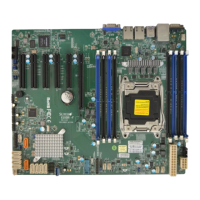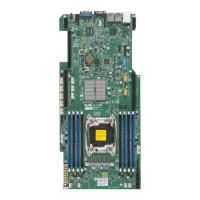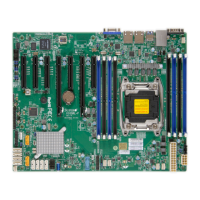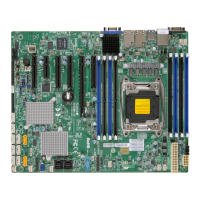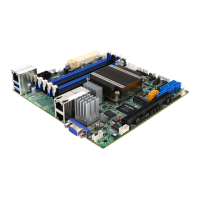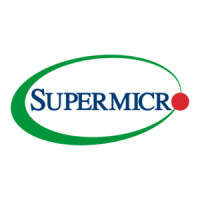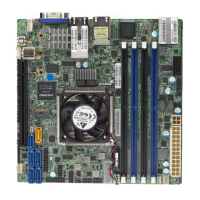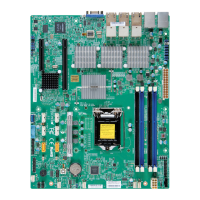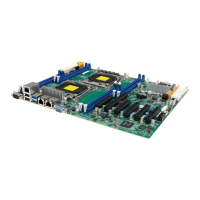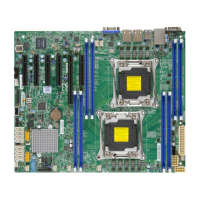17
Chapter 1: Introduction
Note: The table above is continued on the next page.
Motherboard Features
I/O Devices
•
Serial (COM) Port
• One (1) serial port on the rear I/O panel (COM1)
• One (1) front accessible serial port header (COM2)
• SATA 3.0
• Six (6) SATA 3.0 ports supported by Intel PCH (I-SATA 0-5)
• Four (4) SATA 3.0 ports via I-PASS connector (JS1)
• I-SATA4 & I-SATA5 are SuperDOM connectors
• RAID (PCH) • RAID 0, 1, 10
• Video (VGA) Port • One (1) VGA connection on the rear I/O panel
Peripheral Devices
•
Two (2) USB 2.0 ports on the rear I/O panel (USB0/1)
• Two (2) USB 3.0 ports on the rear I/O panel (USB6/7)
• Two (2) front accessible USB 2.0 headers with two (2) USB connections (USB2/3, USB4/5)
• One (1) front accessible USB 3.0 header with two (2) USB connections (USB8/9)
• One (1) Type-A USB 3.0 header (USB10)
BIOS
•
128Mb AMI BIOS
®
SPI Flash BIOS
• ACPI 3.0 or later, Plug and Play (PnP), BIOS rescue hot-key, Riser Card auto detection support, Dual Boot_Block support,
and SMBIOS 2.7 or later
Power Management
•
ACPI power management
• SuperDoctor® 5
• Power button override mechanism
• Power-on mode for AC power recovery
• Power supply monitoring
System Health Monitoring
•
Onboard voltage monitoring for +1.8V, +3.3V, +5V, +/-12V, +3.3V stdby, +5V stdby, VBAT, HT, memory, PCH temperature,
system temperature, and memory temperature
• CPU 5-phase switching voltage regulator
• CPU thermal trip support
• PECI/TSI
Fan Control
•
Low-noise fan speed control
System Management
•
IPMIView, SMCIPMITOOL, IPMICFG
• SPM, SUM In-Band, SUM-OOB
• SuperDoctor® 5
• Chassis intrusion header and detection
• Server Platform Service
• Silicon enabling
• Single cooling zone
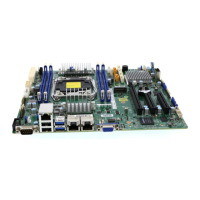
